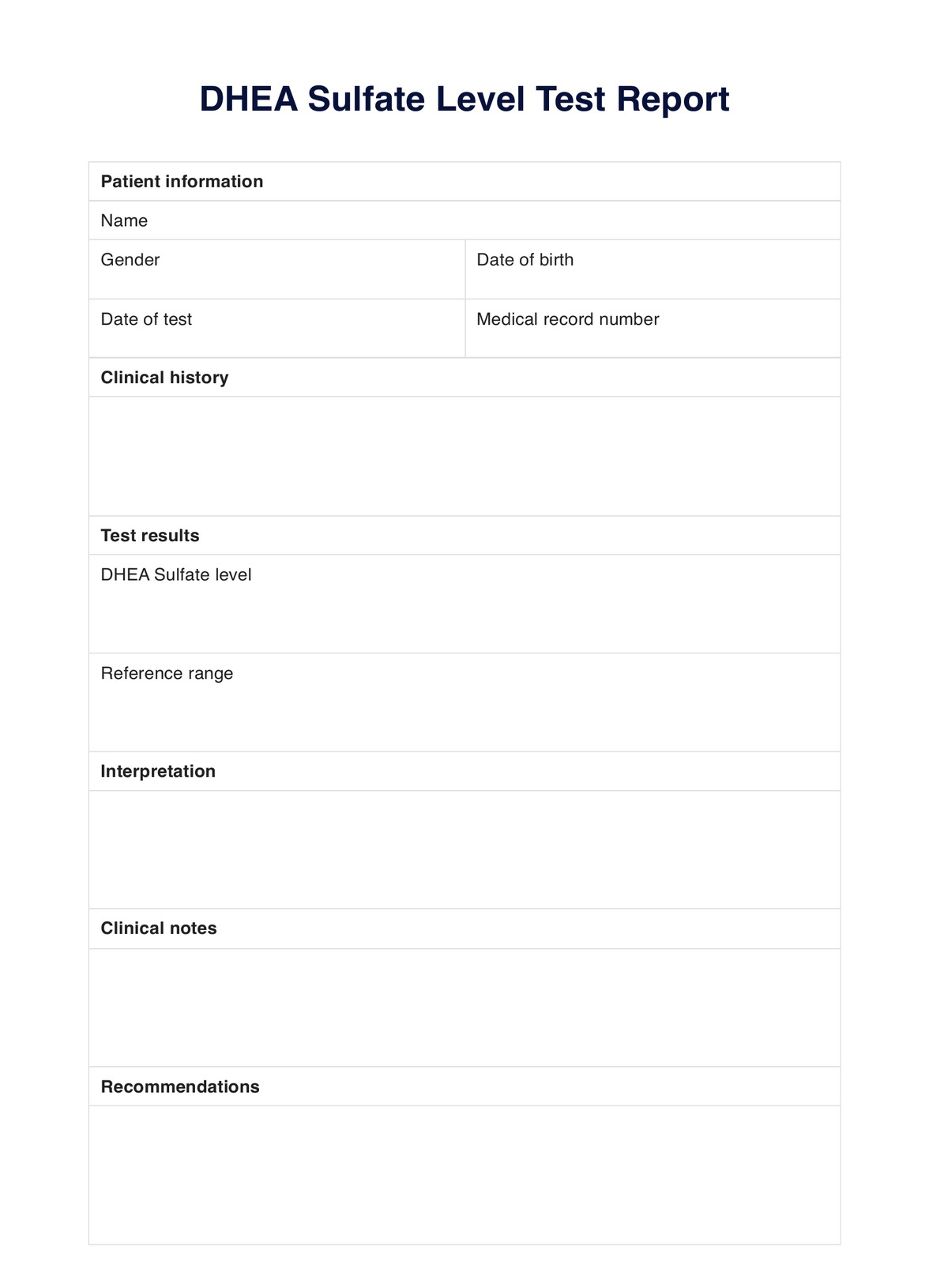A primary care physician, endocrinologist, or gynecologist may request a DHEA Sulfate Test to evaluate hormone levels and overall health.

DHEA Sulfate Test Reports
Get a free DHEA Sulfate Test Report template and an example for reference. Learn about the importance of this test and how to interpret results.
DHEA Sulfate Test Reports Template
Commonly asked questions
DHEA Sulfate Tests are typically used when there is suspicion of a hormone imbalance or to monitor treatment for conditions such as PCOS or adrenal tumors. They may also be used as part of routine health check-ups for postmenopausal women and men over 50.
The test typically takes just a few minutes, but the entire process may take up to an hour, depending on sample collection and processing time. Results are usually available within a few days.
EHR and practice management software
Get started for free
*No credit card required
Free
$0/usd
Unlimited clients
Telehealth
1GB of storage
Client portal text
Automated billing and online payments











